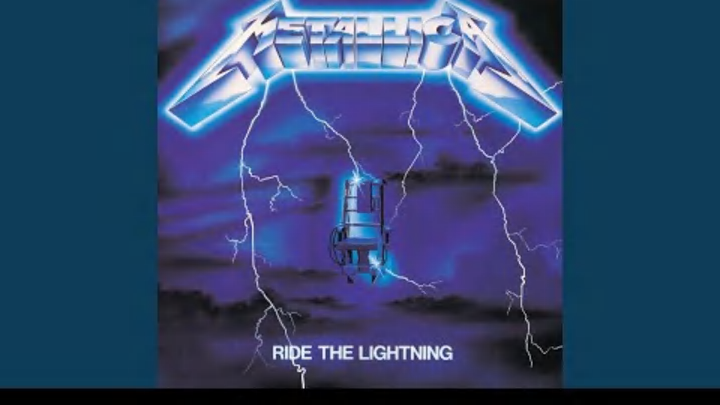Fans who gathered for Metallica’s show at Munich’s Olympiastadion on Friday, May 24th, witnessed an unforgettable moment that could be considered one of the coolest events in rock history, according to Sam Roche of Guitar.com.
At the very least, it's a moment that, in some minds, might have restored a tiny bit of Metallica's perceived lost edge (remember: Metallica actually named one of their albums Kill 'Em All after bassist Cliff Burton reportedly said, "I hate the managers. Let's just Kill 'Em All.")
The concert in question featured a mix of classic hits and newer tracks, creating a powerful and engaging experience for the audience. Metallica's setlist included legendary songs like "For Whom the Bell Tolls," "Fade to Black," and "Seek & Destroy."
They also performed newer tracks from their latest album, 72 Seasons, such as "Lux Æterna" and "Shadows Follow." The thrash metal icons had the crowd electrified with their performance, building up to a grand finale. As the band prepared to close with "Master of Puppets," a thunderstorm was already in full swing, and that's where one might say the magic happened.
Metalica rides the lightning
The downpour didn’t deter the band or the fans. Lars Ulrich initiated the song with his signature four-count, followed by the iconic descending chromatic power chords. Just as James Hetfield was about to launch into the opening riff, a "bright-white lightning bolt" struck behind the stage.
The timing was impeccable, leading to "rapturous applause from the thousands-strong crowd." This moment of sheer synchronicity could be seen as the approval of the metal gods themselves, and a superstitious sign that all is "just" and good with the performance. According to Sam Roche, it was a scene that many fans will remember as one of the best moments in the history of the genre. And who knows? Maybe it's no different in terms of greatness than Kane’s last spoken word of "Rosebud" in Citizen Kane.
Although it would have been even more fitting if the lightning had struck during "Ride the Lightning," reminiscent of the cover of Metallica’s second album, the rarity and perfection of the moment left no room for complaints.
More about why this moment seemed so cool
Metallica, formed in 1981, is one of the most influential heavy metal bands in history, considered one of the "big four" bands of thrash metal, alongside Megadeth, Anthrax and Slayer. The band's lineup includes James Hetfield (vocals, rhythm guitar), Lars Ulrich (drums), Kirk Hammett (lead guitar), and Robert Trujillo (bass). Known for their aggressive music style and complex compositions, Metallica has released several critically acclaimed albums.
Their third album, Master of Puppets, released in 1986, is often considered one of the greatest heavy metal albums of all time, but there's long been talk of Metallica's decline. However, the band's latest album, 72 Seasons, continues to showcase their evolving sound and relentless energy, and a fair amount of people consider it a "Metallica is back" sort of album.
In light of that, the Munich concert added another iconic moment to Metallica's storied career, perhaps forever changing how some view "Master of Puppets" (and let's face it, sunshine during an outdoor performance of "Sunshine of Your Love" wouldn't garner such attention).
How unique was this lighnting strike, really?
It should be noted that similar things happen often enough. Bob Marley once had a lightning moment, and some consider it to be a profound sign of sorts.
The lightning strike during the Germany vs Denmark game earlier this year also led to amazement among football (or soccer) fans,
Then, of course, there are all the times when things go oh so wrong onstage, such as Hetfield's pyrotechnics injury, or when a bird pooped into Cyndi Lauper's mouth live onstage while she was hitting a high note. Interestingly enough, a documentary on her is titled Let the Canary Sing.
Perhaps those moments make the good ones seem all the better for musicians, though we perhaps need the malfunction moments to remind us that iconic performers are actually just human beings, not Gods, or otherwise "supernatural."
Still, that moment of "Master of Puppets" was a testament to the band's enduring connection with their audience and the sheer power of their music. It seems profound. Forget the fans for a second; it seems like a moment where cries of "Boooo!!" just couldn't be applied. Let the band and the fans have their moment. The thunderstorm in Munich was just another chapter in the often-epic saga of Metallica.
